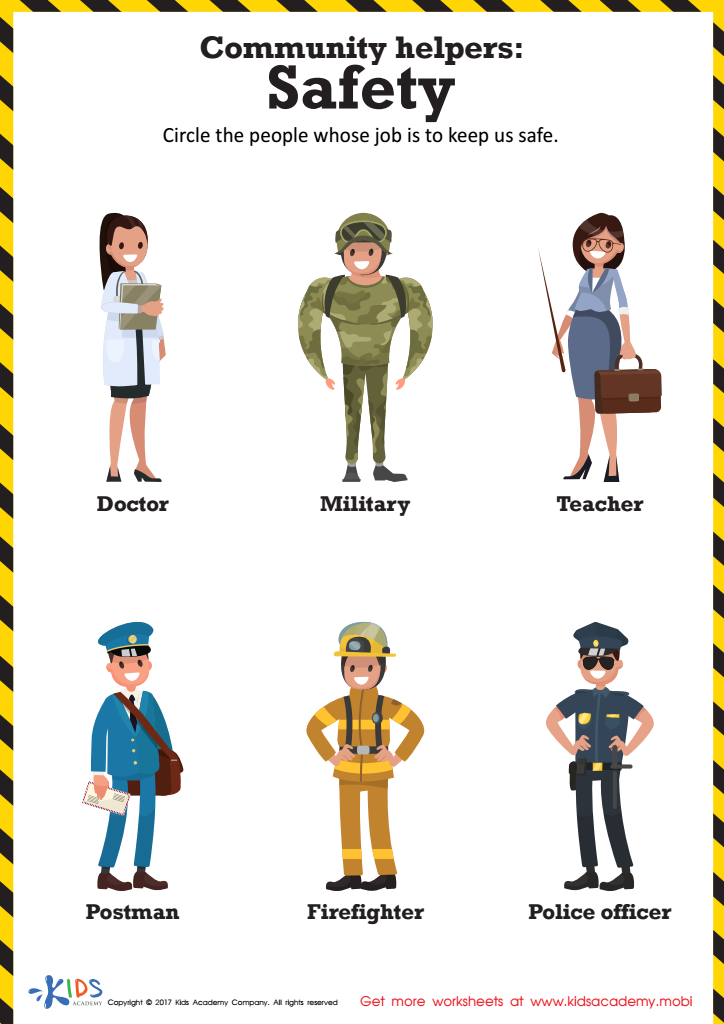Normal Community Worksheets for Ages 6-8
13 filtered results
Difficulty Level
Grade
Age
-
From - To
Subject
Activity
Standards
Favorites
With answer key
Interactive
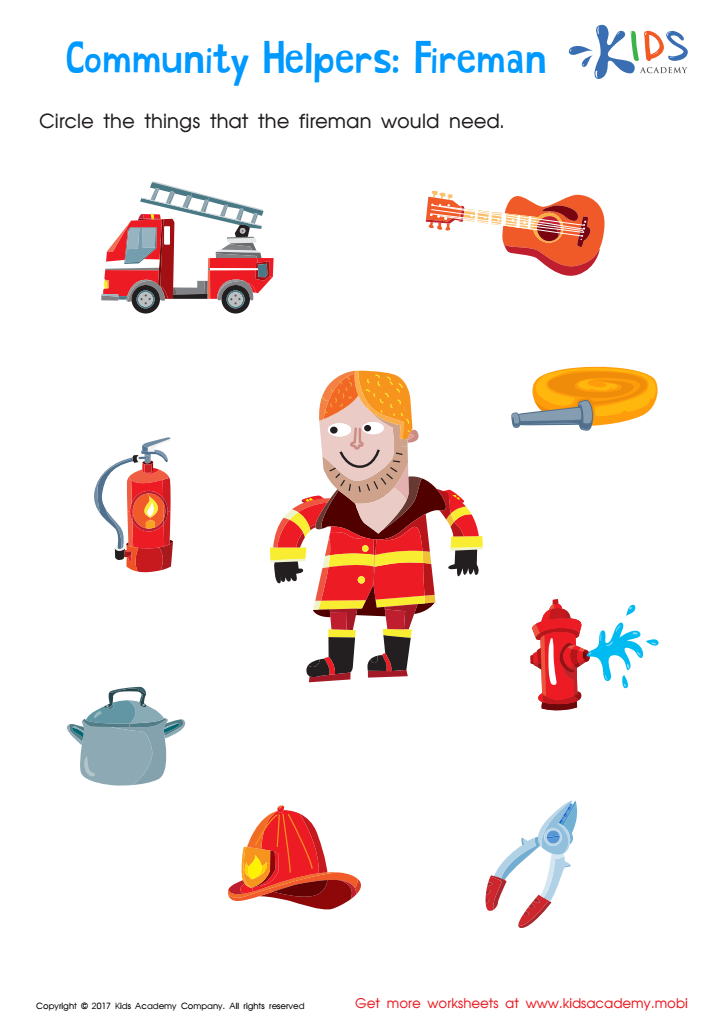

Fireman Worksheet
Kids love firemen and their big fire engines! Inspire your child to learn about their duties with this fun fireman worksheet. It'll help your child understand the role of firemen, as well as develop matching and problem solving skills. Get your kid started on understanding a key role in society and have fun too!
Fireman Worksheet
Worksheet
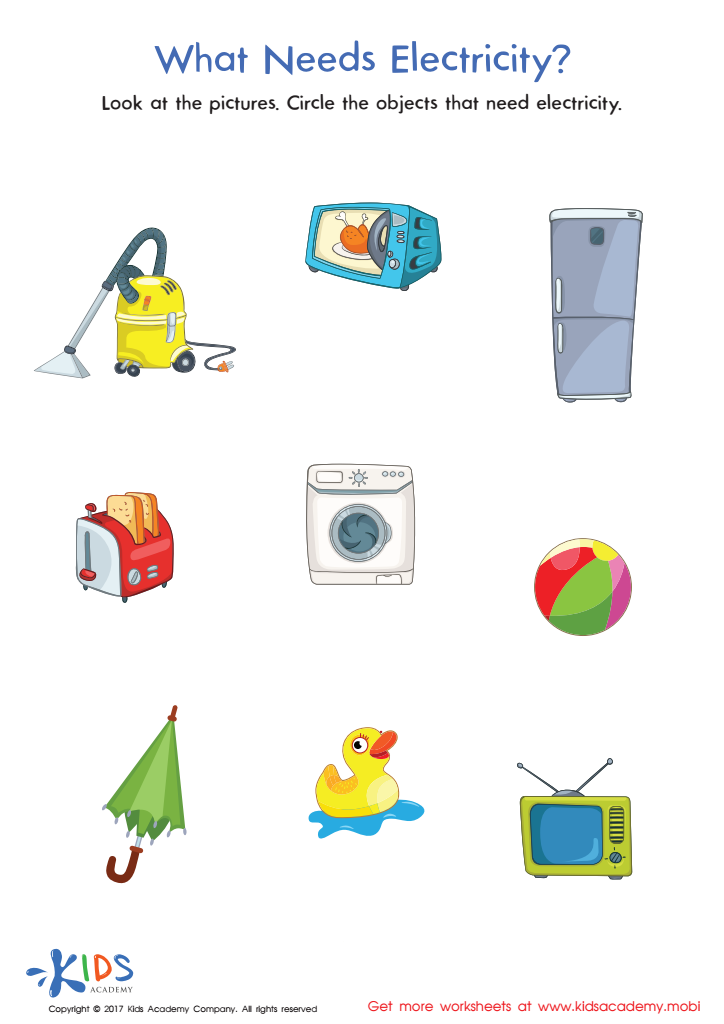

What Needs Electricity Printable
Up to 80 words: This worksheet will help your child use sorting skills to find the right objects that need electricity, strengthen problem solving skills, and learn more about electricity and electrical appliances. Let this fascinating science topic teach your little learner about the objects in their lives that need electricity!
What Needs Electricity Printable
Worksheet
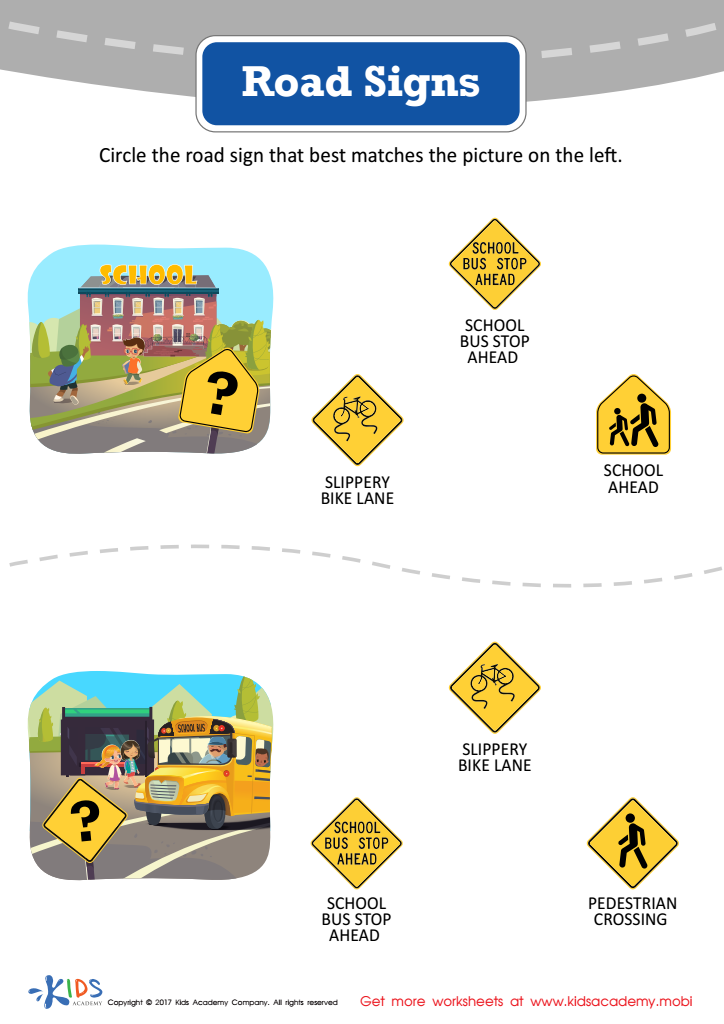

Road Signs (Part 1) Worksheet
Kids are exposed to danger near roads, so help them recognize traffic signs with this printable. It'll foster their reading comprehension and symbol recognition, while keeping them safe.
Road Signs (Part 1) Worksheet
Worksheet


Grocery Store Worksheet
Kids love going to the grocery store for free samples and munchies! With this grocery store sorting worksheet, they can practice sorting, problem-solving and thinking skills. Learning experiences from real life, like grocery shopping, can be brought to your child's desk for fun matching activities. Try it out and look for these items the next time you go to the store!
Grocery Store Worksheet
Worksheet
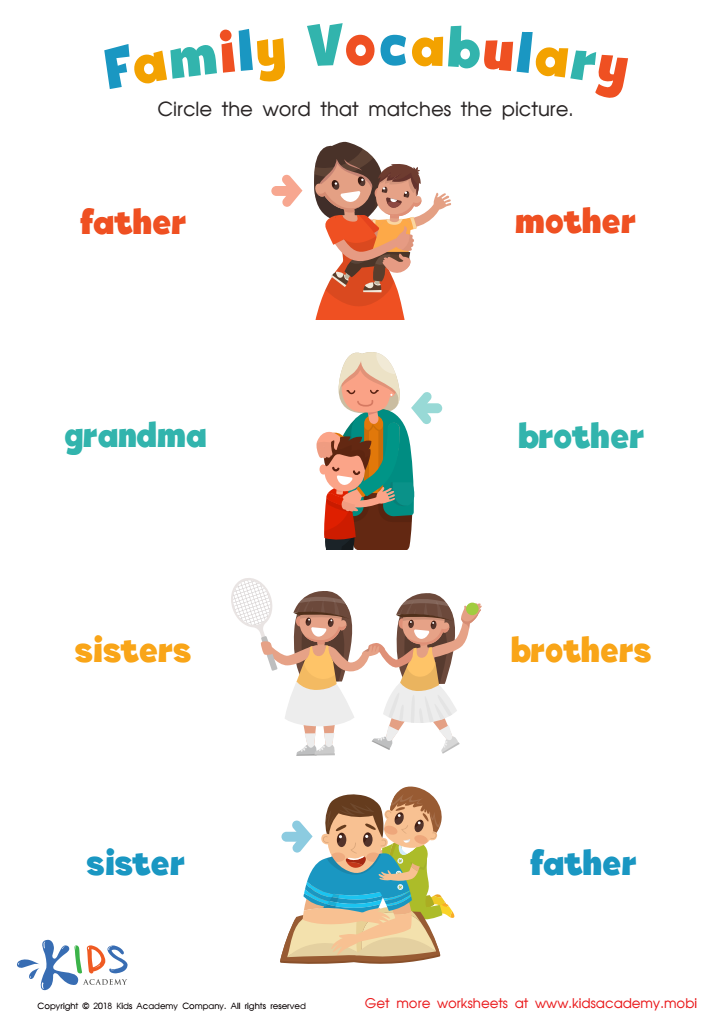

Family Vocabulary Worksheet
Students learn about families in social studies. This worksheet helps them identify family members by looking at a picture and circling the corresponding word. To extend their learning, ask them to talk about their own family members.
Family Vocabulary Worksheet
Worksheet


Playground Worksheet
Head to the park with this playground worksheet! It strengthens sorting and cognitive skills while encouraging problem solving. Plus, it's fun-filled and engaging! When finished, head out to the park to see what items your child finds in the playground!
Playground Worksheet
Worksheet
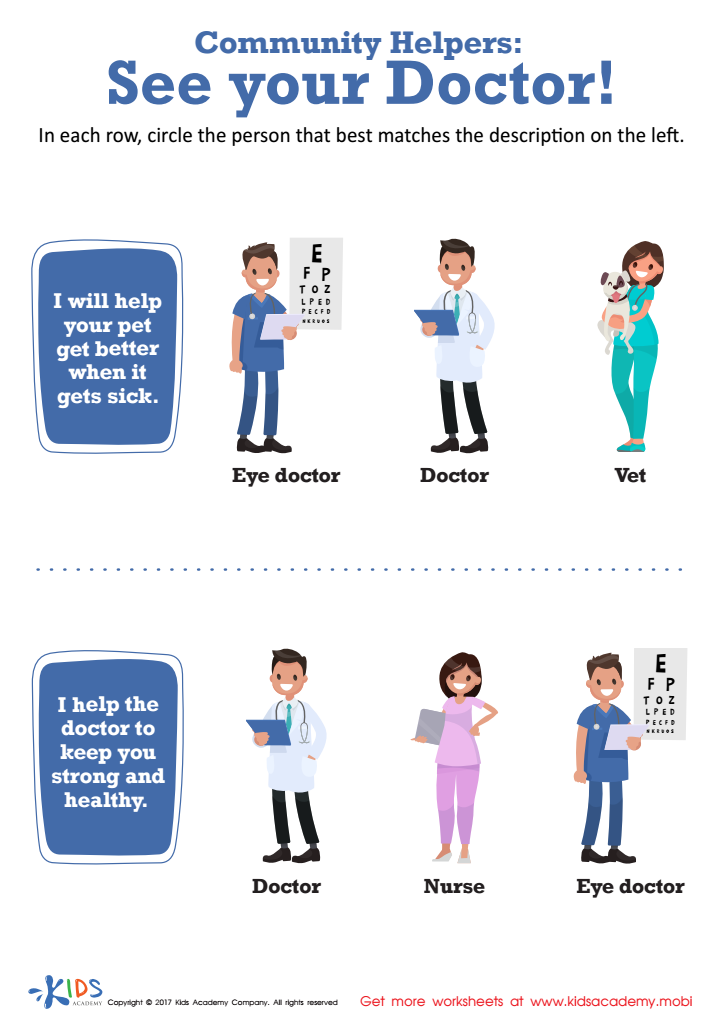

See Your Doctor (Part 2) Printable
Nurses, vets and eye doctors fulfill important needs in our communities. With this worksheet, your child can recognize and classify different types of doctors and explore potential interests. Learn more about the people in our community, and start a conversation about potential interests. A great way to make your child think about different types of doctors!
See Your Doctor (Part 2) Printable
Worksheet
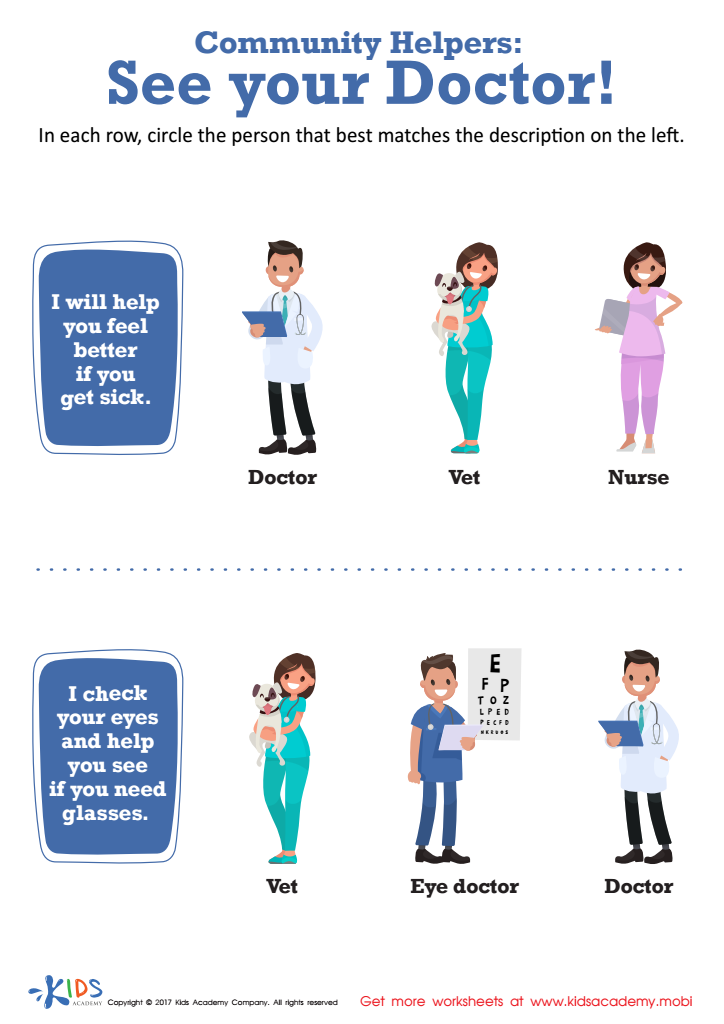

See Your Doctor (Part 1) Printable
Your child may be scared of doctors, but this worksheet can help them appreciate them. It teaches about different types of doctors and helps them understand more about their community. Learning about different professions is a great way to discover potential interests, so let's get started with community helpers!
See Your Doctor (Part 1) Printable
Worksheet
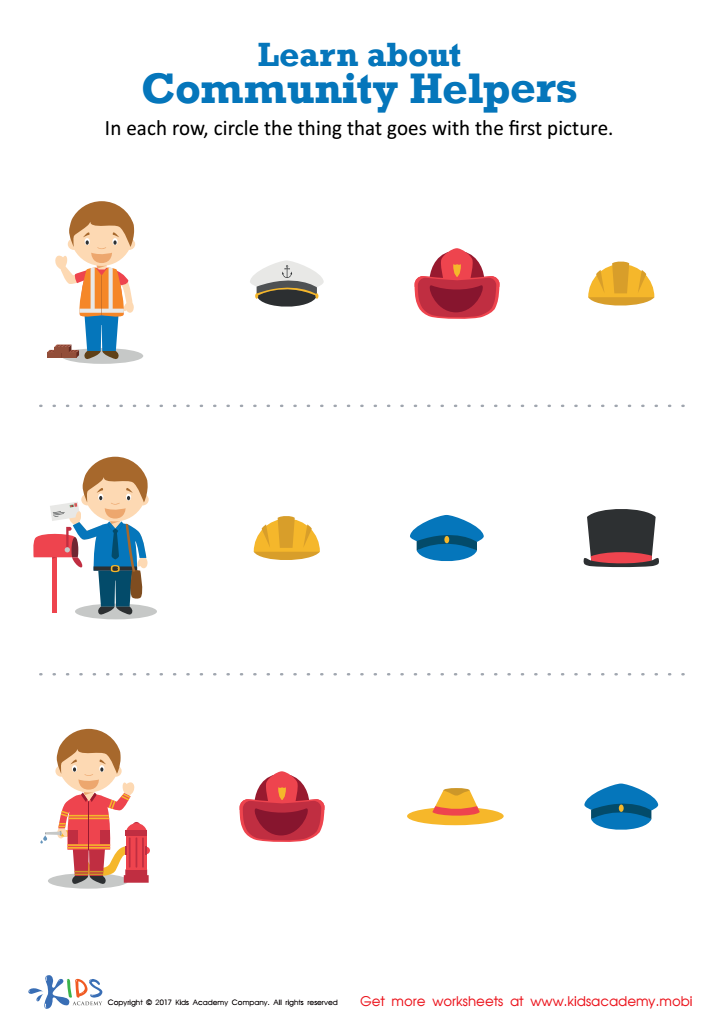

Learn about Community Helpers Printable
Introduce your little one to the amazing and hard-working people in the community with this free worksheet. It will help them use matching and observational skills to match the correct hat to its worker and recognize community helpers. Perfect for early learners, this worksheet uses familiar images to help them gain a deeper appreciation for their community helpers!
Learn about Community Helpers Printable
Worksheet
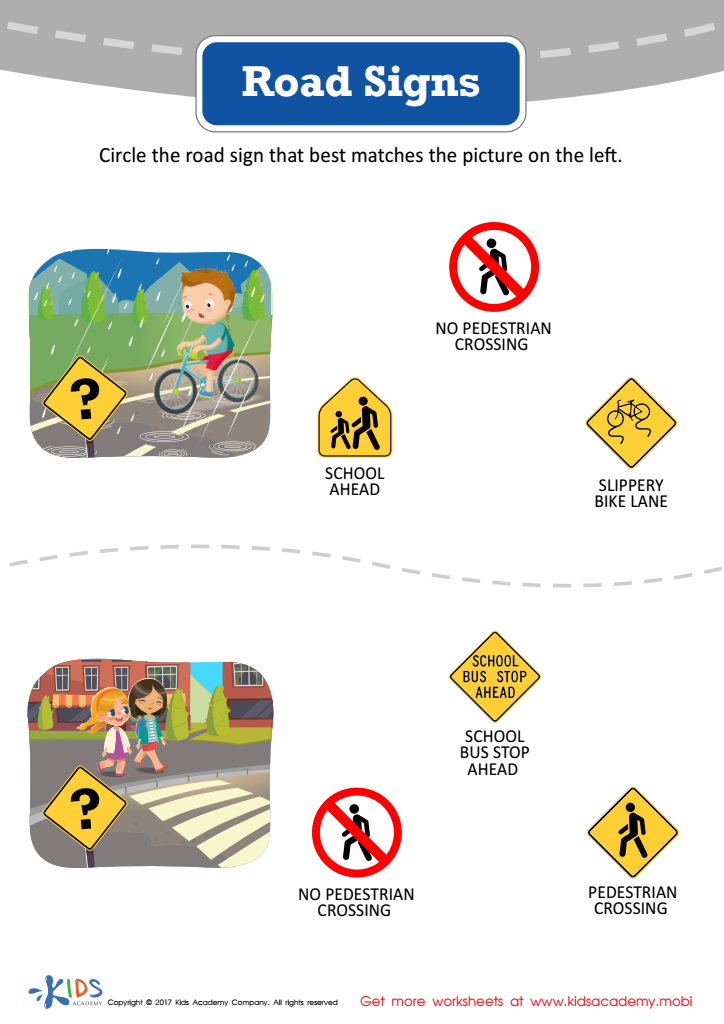

Road Signs (Part 2) Printable
Help your child stay safe with road sign worksheets! These worksheets help kids recognize common traffic signs, boost comprehension and symbol recognition, and know when to stay safe near or on roads. Use the sheets to start a conversation, and take your child out to spot signs near home or school.
Road Signs (Part 2) Printable
Worksheet

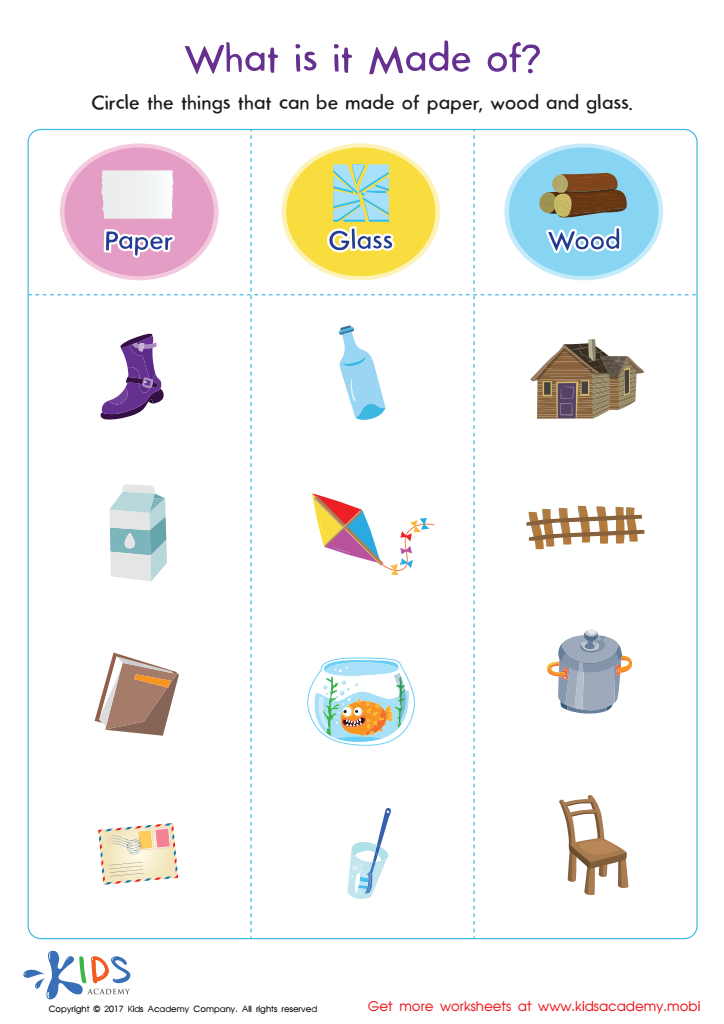
 Assign to the classroom
Assign to the classroom
